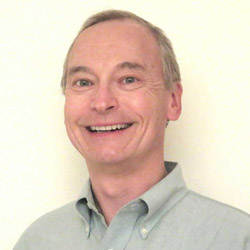News: LEDs
1 November 2024
UCSB’s Chris Van de Walle awarded APS’ 2025 Aneesur Rahman Prize for Computational Physics
Chris Van de Walle, a distinguished professor of materials at University of California Santa Barbara (UCSB), has been awarded the American Physical Society’s 2025 Aneesur Rahman Prize for Computational Physics. Dating back to 1993, the prize honors Rahman, a founder of the field of molecular dynamics who pioneered computational methods for modeling physical systems.
Van de Walle is an elected member of the US National Academy of Engineering and a fellow of APS, the Institute of Electrical and Electronics Engineers, the American Association for the Advancement of Science, the Materials Research Society, and the American Vacuum Society.
Van de Walle performs computational work to develop a fundamental understanding of the physics and chemistry of materials in order to improve existing materials and discover new ones. His work on interfaces has assisted generations of semiconductor physicists in designing novel heterostructures, and his methodologies have helped to guide the development of devices such as transistors and lasers and, recently, the structures that underlie novel qubits. His research group’s approaches in the area of point defects have been adopted by researchers throughout the world in a range of applications, from developing better materials for fuel cells to overcoming efficiency limits in light-emitting diodes.
 Picture: UCSB’s Chris Van de Walle.
Picture: UCSB’s Chris Van de Walle.
APS selected Van de Walle for the Rahman Prize in recognition of his “development and application of first-principles methods for computing the structural, electronic, and optoelectronic properties of point defects and interfaces.”
The defects that used to be viewed as detrimental to materials have recently emerged as functional elements in quantum information science, and the techniques developed in Van de Walle’s group are now employed to analyze and design quantum sensors and single-photon emitters.
“The Rahman Prize serves as a testament to his ability to identify and help solve critical challenges to technological applications, and it further demonstrates the global impact that his first-principle techniques and computational research have made,” comments Umesh Mishra, dean of UCSB’s College of Engineering.
Van de Walle acknowledged the contributions of many people, including mentors such as Richard Martin and Sokrates Pantelides, to the work recognized by the award.
Van de Walle received a Vannevar Bush Faculty Fellowship in 2022 from the US Department of Defense, a $2.5m award to study the processes that limit the efficiency of light-emitting diodes, lasers and other optoelectronic devices. “I am also very grateful to the Materials Department, the College of Engineering, and the UC Santa Barbara campus for providing a supportive and stimulating environment for fundamental computational research.”









